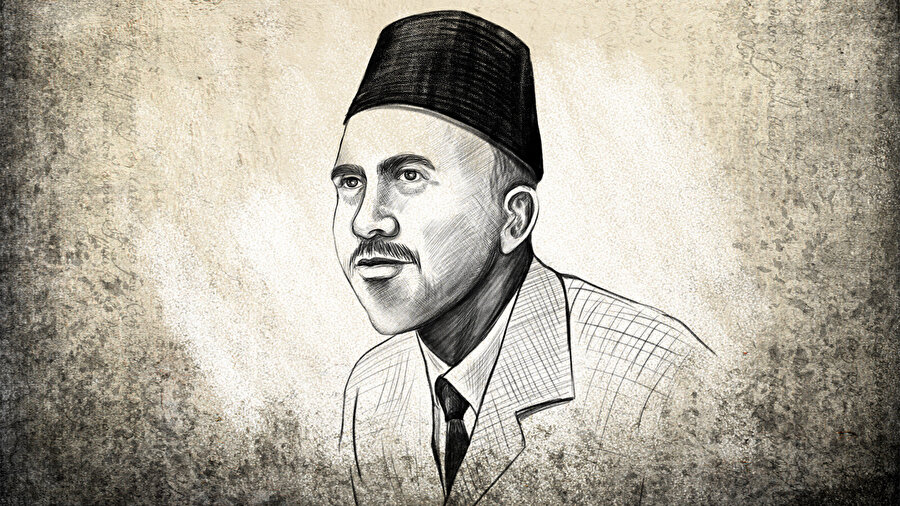African mothers raise their children with his stories: Who is Imam Haron?
Imam Abdullah Haron, the symbol of the stance against racism and injustice for South African Muslims, was born on February 8, 1924, in Cape Town, South Africa.

Harun, the youngest child in his family, lost his mother when he was a baby. Since his father was unable to take care of him, his aunt Mary took care of Imam Haron. Meryem, a religious woman, encouraged Imam Harun to get a good education.
After completing his primary education in South Africa, Harun, who went to Mecca with his aunt to receive Islamic education, took lessons on tafsir, hadith, and Islamic history from his teacher, Abdurrahman al-Alawi, who greatly influenced him. Imam Abdullah Harun, who built his intellectual world during his education, was influenced by the scientific culture in Mecca.
Abdullah Haron (8 February 1924 – 27 September 1969), also known as Imam Haron, was a South African Muslim cleric and anti-apartheid activist. He is best known for his anti-apartheid activism and subsequent death by the Security Branch of the apartheid-era South African Police Force in 1969. Haron was posthumously awarded the Order of Luthuli in Gold in 2014 for his "exceptional contribution to raising awareness of political injustices".
When his education was interrupted by the start of the Second World War, he returned to his country and completed his education by taking lessons from Sheikh Abdullah Cemalledin and his teacher, Sheikh İsmail Ganief, who pushed him to deal with social problems. Meanwhile, he engaged in an intellectual exchange with the teachers he met while teaching at the local Muslim school where he worked part-time.
While Haron greatly influenced his friends with his own ideas, he was also influenced by the ideas of the Muslim Brotherhood movement, which he met through his friends.
Married in 1950, Harun was elected as the imam of the Al-Camia mosque in Cape Town in 1955. While he was carrying out his duty as an imam in the mosque, on the one hand, he carried out educational programs for women and children, on the other hand, he gave speeches that drew attention to the social problems after the reaction for men, especially during Ramadan. In a short time, he became famous for his sermons in which he spoke about political issues.
There was discrimination against black Muslims and mestizos in South Africa. Black people, who had limited access to health and education services, were not allowed to engage in political activities. In his sermons, Imam Harun criticizes these actions of the South African state and mentions that racism is prohibited in Islam.
Imam Haron, who made it his duty to deal with the problems of society in addition to his duty as an imam, helped the poor people with the money he collected from the rich. He founded the Cape Town Muslim Youth Association in 1958 to provide Islamic education to Muslim youth, together with friends he met from his school. He planned to open a school providing Islamic education as an alternative to secular education, which he thought alienated the youth from Islamic values, but could not do so due to lack of opportunities. In 1960, he became the editor of the "Islamic news" newspaper, which was opened to be a news network for Muslims and published articles there.
Imam Haron, who concentrated on social projects and education works until 1961, changed the method of struggle with the law change made by the government in 1961. The law, called the sabotage law, gave the apartheid regime the right to punish those who did the slightest activity against the state, from 5 years in prison to death.
As the pressure on black groups and Muslims increased in South Africa, Imam Harun traveled in 1968 to visit Mecca, enroll his daughter in school in London, and attend the AUK meeting. Imam, who first went to Mecca and fulfilled his Hajj duty, went to Cairo and attended the AUK meeting, where he was going to give a speech on Muslim unity. When he moved from Cairo to London, he received word that the police were looking for him. Imam Harun, who had to stay abroad to avoid being arrested, had to return to South Africa when his asylum application to Canada was not accepted.
Although the prison administration said that he had fallen from the stairs and died, the edema, fractures, and wounds detected in the autopsy performed after his death confirmed the claim that he died due to torture. Muslims from all over the world attended his funeral, which was held in Cape Town after his death, and he was sent off to the hereafter with the most crowded funeral that Cape Town has ever seen.
